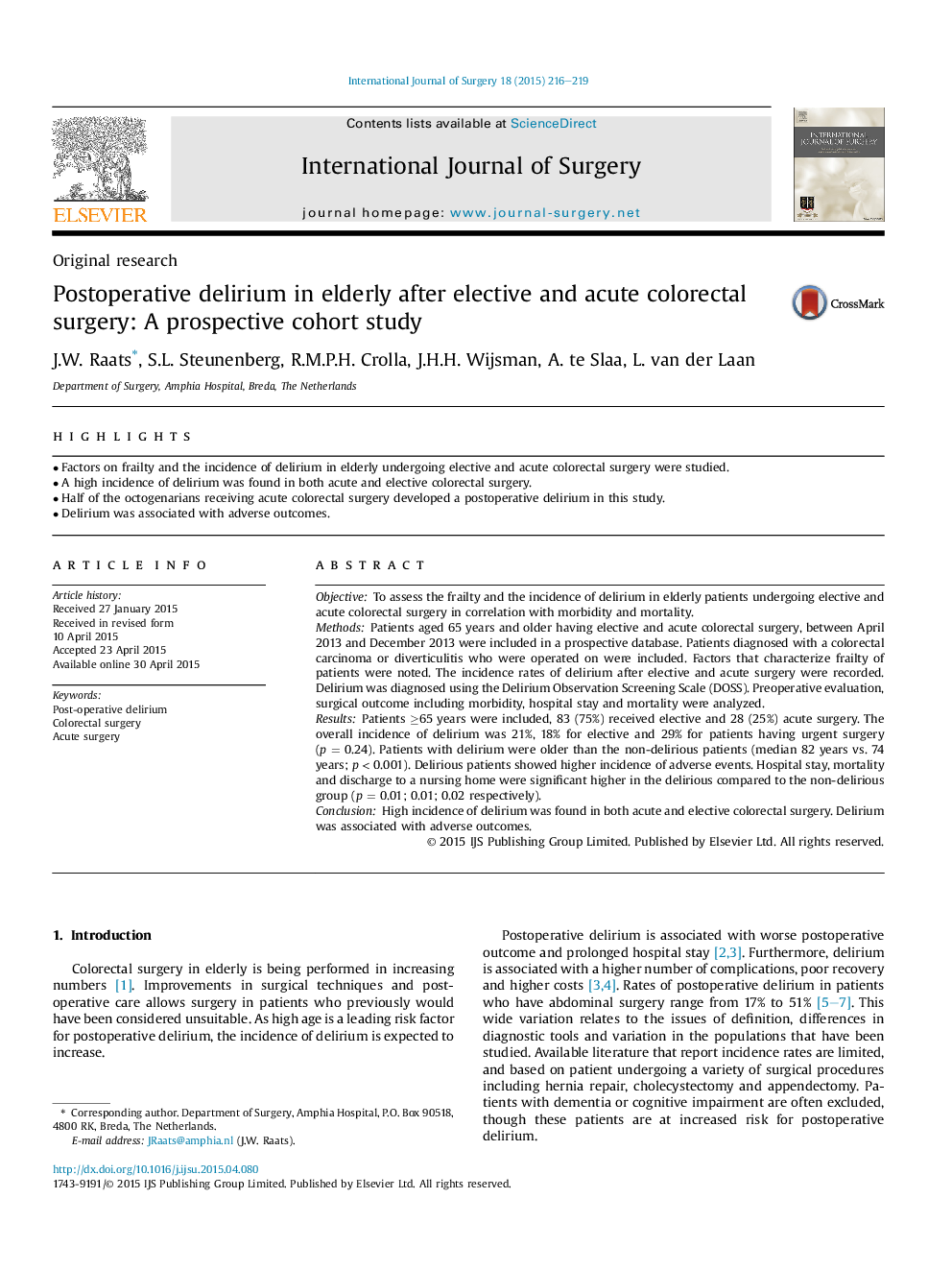| Article ID | Journal | Published Year | Pages | File Type |
|---|---|---|---|---|
| 4285851 | International Journal of Surgery | 2015 | 4 Pages |
•Factors on frailty and the incidence of delirium in elderly undergoing elective and acute colorectal surgery were studied.•A high incidence of delirium was found in both acute and elective colorectal surgery.•Half of the octogenarians receiving acute colorectal surgery developed a postoperative delirium in this study.•Delirium was associated with adverse outcomes.
ObjectiveTo assess the frailty and the incidence of delirium in elderly patients undergoing elective and acute colorectal surgery in correlation with morbidity and mortality.MethodsPatients aged 65 years and older having elective and acute colorectal surgery, between April 2013 and December 2013 were included in a prospective database. Patients diagnosed with a colorectal carcinoma or diverticulitis who were operated on were included. Factors that characterize frailty of patients were noted. The incidence rates of delirium after elective and acute surgery were recorded. Delirium was diagnosed using the Delirium Observation Screening Scale (DOSS). Preoperative evaluation, surgical outcome including morbidity, hospital stay and mortality were analyzed.ResultsPatients ≥65 years were included, 83 (75%) received elective and 28 (25%) acute surgery. The overall incidence of delirium was 21%, 18% for elective and 29% for patients having urgent surgery (p = 0.24). Patients with delirium were older than the non-delirious patients (median 82 years vs. 74 years; p < 0.001). Delirious patients showed higher incidence of adverse events. Hospital stay, mortality and discharge to a nursing home were significant higher in the delirious compared to the non-delirious group (p = 0.01; 0.01; 0.02 respectively).ConclusionHigh incidence of delirium was found in both acute and elective colorectal surgery. Delirium was associated with adverse outcomes.
